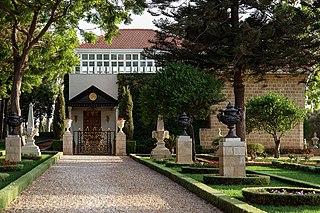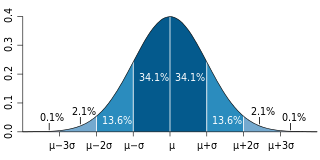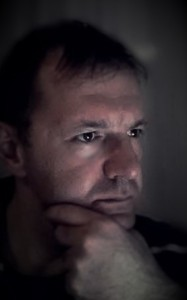Related Research Articles

The Baháʼí Faith is a monotheistic religion founded in the 19th century that teaches the essential worth of all religions and the unity of all people. Established by Baháʼu'lláh, it initially developed in Iran and parts of the Middle East, where it has faced ongoing persecution since its inception. The religion is estimated to have approximately 8 million adherents as of 2020, spread throughout most of the world's countries and territories.
The Book of Exodus is the second book of the Bible. It is a narrative of the Exodus, the origin myth of the Israelites leaving slavery in Biblical Egypt through the strength of their deity named Yahweh, who according to the story chose them as his people. The Israelites then journey with the legendary prophet Moses to Mount Sinai, where Yahweh gives the Ten Commandments and they enter into a covenant with Yahweh, who promises to make them a "holy nation, and a kingdom of priests" on condition of their faithfulness. He gives them their laws and instructions to build the Tabernacle, the means by which he will come from heaven and dwell with them and lead them in a holy war to conquer Canaan, which has earlier, according to the myth of Genesis, been promised to the "seed" of Abraham, the legendary patriarch of the Israelites.

Original sin in Christian theology refers to the condition of sinfulness that all humans share, which is inherited from Adam and Eve due to the Fall, involving the loss of original righteousness and the distortion of the Image of God. The biblical basis for the belief is generally found in Genesis 3, and in texts such as Psalm 51:5 and Romans 5:12–21.

In the philosophy of religion, a theodicy is an argument that attempts to resolve the problem of evil that arises when all power and all goodness are simultaneously ascribed to God.

A utopia typically describes an imaginary community or society that possesses highly desirable or near-perfect qualities for its members. It was coined by Sir Thomas More for his 1516 book Utopia, which describes a fictional island society in the New World.

Determinism is the philosophical view that all events in the universe, including human decisions and actions, are causally inevitable. Deterministic theories throughout the history of philosophy have developed from diverse and sometimes overlapping motives and considerations. Like eternalism, determinism focuses on particular events rather than the future as a concept. Determinism is often contrasted with free will, although some philosophers claim that the two are compatible. A more extreme antonym of determinism is indeterminism, or the view that events are not deterministically caused but rather occur due to random chance.
Theistic evolution, alternatively called evolutionary creationism, is a view that God acts and creates through laws of nature. Here, God is taken as the primary cause while natural causes are secondary, positing that the concept of God and religious beliefs are compatible with the findings of modern science, including evolution. Theistic evolution is not in itself a scientific theory, but includes a range of views about how science relates to religious beliefs and the extent to which God intervenes. It rejects the strict creationist doctrines of special creation, but can include beliefs such as creation of the human soul. Modern theistic evolution accepts the general scientific consensus on the age of the Earth, the age of the universe, the Big Bang, the origin of the Solar System, the origin of life, and evolution.
The existence of God is a subject of debate in the philosophy of religion and theology. A wide variety of arguments for and against the existence of God can be categorized as logical, empirical, metaphysical, subjective, or scientific. In philosophical terms, the question of the existence of God involves the disciplines of epistemology and ontology and the theory of value.

The attributes of God are specific characteristics of God discussed in Christian theology.

Big History is an academic discipline that examines history from the Big Bang to the present. Big History resists specialization and searches for universal patterns or trends. It examines long time frames using a multidisciplinary approach based on combining numerous disciplines from science and the humanities. It explores human existence in the context of this bigger picture. It integrates studies of the cosmos, Earth, life, and humanity using empirical evidence to explore cause-and-effect relations. It is taught at universities as well as primary and secondary schools often using web-based interactive presentations.
Theological determinism is a form of predeterminism which states that all events that happen are pre-ordained, and/or predestined to happen, by one or more divine beings, or that they are destined to occur given the divine beings' omniscience. Theological determinism exists in a number of religions, including Jainism, Judaism, Christianity, and Islam. It is also supported by proponents of Classical pantheism such as the Stoics and by philosophers such as Baruch Spinoza.

Christus Victor is a book by Gustaf Aulén published in English in 1931, presenting a study of theories of atonement in Christianity. The original Swedish title is Den kristna försoningstanken published in 1930. Aulén reinterpreted the classic ransom theory of atonement, which says that Christ's death is a ransom to the powers of evil, which had held humankind in their dominion. It is a model of the atonement that is dated to the Church Fathers, and it was the dominant theory of atonement for a thousand years, until Anselm of Canterbury supplanted it in the West with his satisfaction theory of atonement.

Penal substitution, also called penal substitutionary atonement and especially in older writings forensic theory, is a theory of the atonement within Protestant Christian theology, which declares that Christ, voluntarily submitting to God the Father's plan, was punished (penalized) in the place of (substitution) sinners, thus satisfying the demands of justice and propitiation, so God can justly forgive sins making us at one with God (atonement). It began with the German Reformation leader Martin Luther and continued to develop within the Calvinist tradition as a specific understanding of substitutionary atonement. The penal model teaches that the substitutionary nature of Jesus' death is understood in the sense of a substitutionary fulfilment of legal demands for the offenses of sins.

Adam and Eve, according to the creation myth of the Abrahamic religions, were the first man and woman. They are central to the belief that humanity is in essence a single family, with everyone descended from a single pair of original ancestors. They also provide the basis for the doctrines of the fall of man and original sin, which are important beliefs in Christianity, although not held in Judaism or Islam.

The Evolution of God is a 2009 book by Robert Wright, in which the author explores the history of the concept of God in the three Abrahamic religions through a variety of means, including archaeology, history, theology, and evolutionary psychology. The patterns which link Judaism, Christianity, and Islam and the ways in which they have changed their concepts over time are explored as one of the central themes.

Vojin B. Rakic is a Serbian philosopher and political scientist. He publishes in English, but also in Serbian. He has a PhD in political science from Rutgers University in the United States. He has published on ethics, bioethics, Kant, and cosmopolitan justice.

The Augustinian theodicy, named for the 4th- and 5th-century theologian and philosopher Augustine of Hippo, is a type of Christian theodicy that developed in response to the evidential problem of evil. As such, it attempts to explain the probability of an omnipotent (all-powerful) and omnibenevolent (all-loving) God amid evidence of evil in the world. A number of variations of this kind of theodicy have been proposed throughout history; their similarities were first described by the 20th-century philosopher John Hick, who classified them as "Augustinian". They typically assert that God is perfectly (ideally) good, that he created the world out of nothing, and that evil is the result of humanity's original sin. The entry of evil into the world is generally explained as consequence of original sin and its continued presence due to humans' misuse of free will and concupiscence. God's goodness and benevolence, according to the Augustinian theodicy, remain perfect and without responsibility for evil or suffering.
Relating theodicy and the Bible is crucial to understanding Abrahamic theodicy because the Bible "has been, both in theory and in fact, the dominant influence upon ideas about God and evil in the Western world". Theodicy, in its most common form, is the attempt to answer the question of why a good God permits the manifestation of evil. Theodicy attempts to resolve the evidential problem of evil by reconciling the traditional divine characteristics of omnibenevolence and omnipotence, in either their absolute or relative form, with the occurrence of evil or suffering in the world.

Augustinianism is the philosophical and theological system of Augustine of Hippo and its subsequent development by other thinkers, notably Boethius, Anselm of Canterbury and Bonaventure. Among Augustine's most important works are The City of God, De doctrina Christiana, and Confessions.
Moral enhancement, also called moral bioenhancement, is the use of biomedical technology to morally improve individuals. MBE is a growing topic in neuroethics, a field developing the ethics of neuroscience as well as the neuroscience of ethics. After Thomas Douglas introduced the concept of MBE in 2008, its merits have been widely debated in academic bioethics literature. Since then, Ingmar Persson and Julian Savulescu have been among the most vocal MBE supporters. Much of the debate over MBE has focused on Persson and Savulescu's 2012 book in support of it, Unfit for the Future? The Need for Moral Enhancement.
References
- Rakić, Vojin. 2009. “From Biology to Ethics: the Future of Evolution as Humanity’s Path to Justice”. Theoria 52 (3): 37-47
- Wright, Robert. 2009. The Evolution of God. New York; Little, Brown and Company